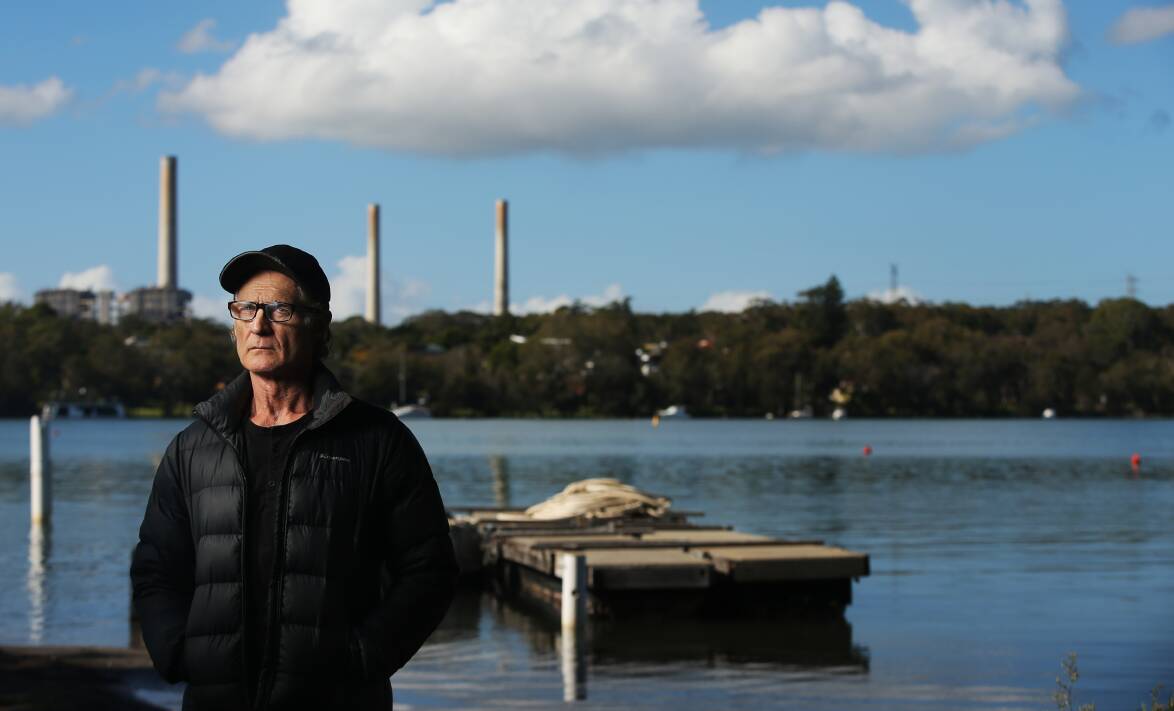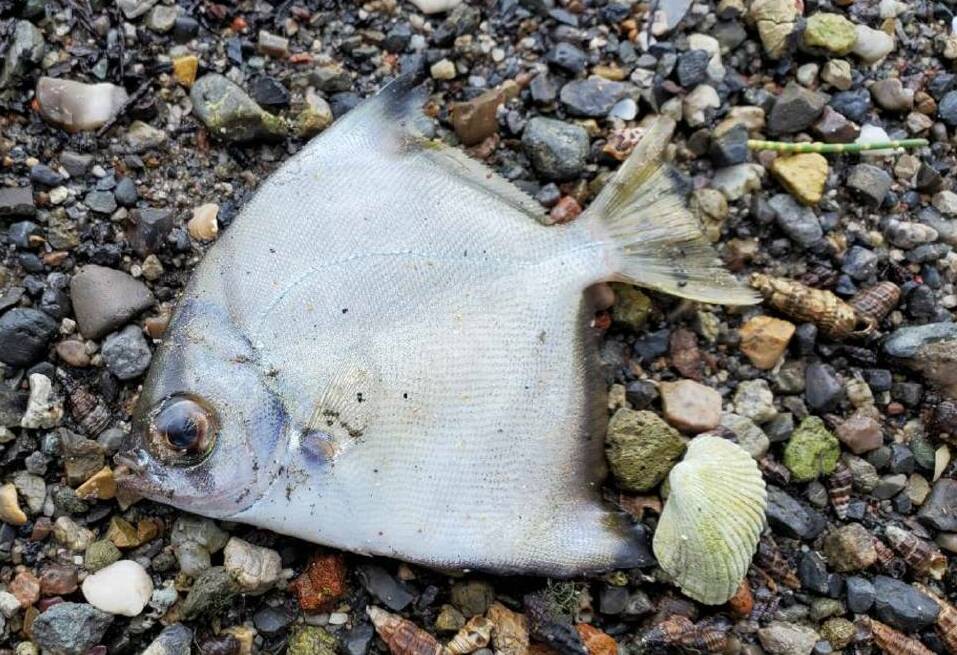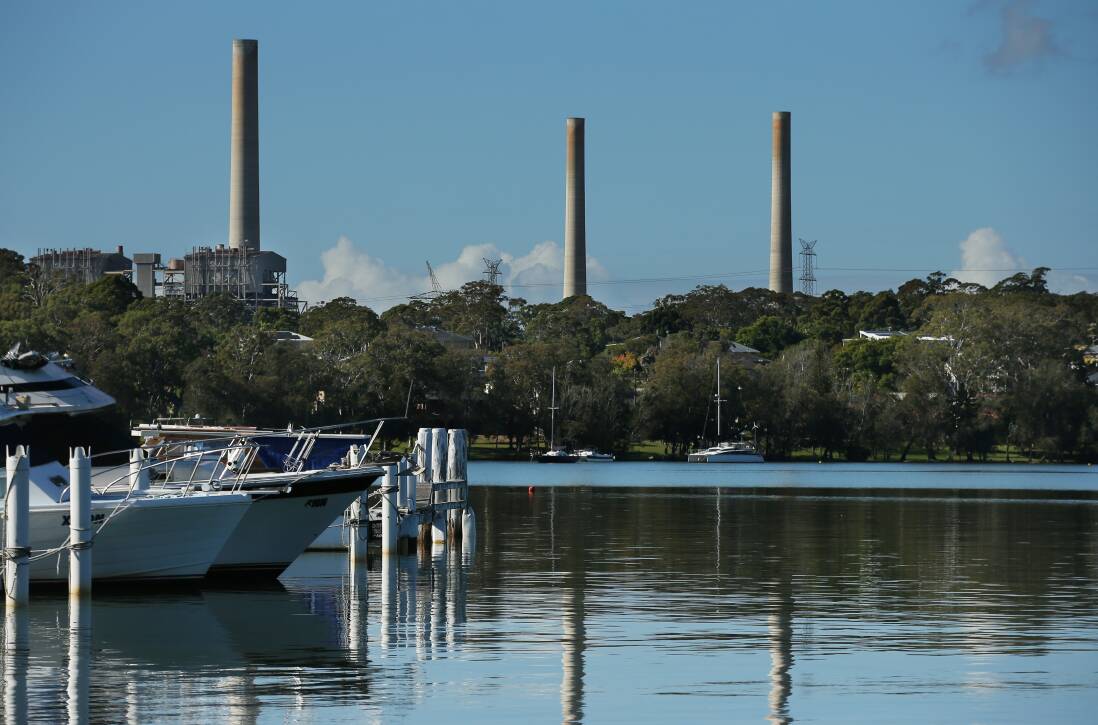
The Hunter Community Environment Centre has called for the implementation of tougher penalties and regulation of Vales Point Power Station following new research highlighting the plant's impact on Lake Macquarie over two decades.
A trove of regulatory documents obtained by the group under government access to information laws (GIPA) form the basis of a 60-page report Delta's Dirty Deeds Done Dirt Cheap.
Included are NSW Environment Protection Authority records that show the power station and its associated coal mining operations had 57 licence breaches over 23 years.
There were another two breaches for asbestos dumping and two for allowing coal ash to blow from its ash dam.
"Delta seems to believe it is immune from prosecution, and continues to pursue profit over compliance with the laws of NSW," the report says.
"The Environmental Protection Authority, tasked with protecting the surrounding population and environment from such corporate avarice, has instead relied on infringement notices and public shaming. However, these processes have not been effective in addressing the continual degradation of Lake Macquarie."
Delta Electricity, which has operated the plant since 2015, has dismissed the report's findings as misleading and lacking factual context.
NSW EPA chief executive Tony Chappel said the authority would consider the report's content and its seven recommendations.
Delta is presently the subject of an EPA investigation into a fish kill that occurred at Mannering Park in August last year.
Many residents believe the incident was connected to the operation of the power station, however, a conclusive link has not been proven.

EPA officials inspected the plant in the days following the incident and secured items of interst. Affidavits have also been taken.
A report on the matter is due by the end of the financial year.
Documents used in the HCEC report's preparation show Vales Point, which opened in 1979, is responsible for the loss and degradation of vast areas of sea grass and marine life.
They show the plant pumps twice the entire volume of Lake Macquarie annually to cool its condensers.
In addition to the fish and other marine animals that are killed at the intake screens, fish larvae and plankton that are drawn into the plant also perish.
A 2007 report into changes to the distribution of sea grass in Wyee Bay revealed that when cooling water is released back into the bay it has been treated with chlorine and other chemicals and heated by about 10 degrees, killing or damaging the sea grass up to two kilometres away.
The power station's thermal pollution has been discharged up to 11.3 degrees above average ambient Lake temperatures in winter and 15.7 degrees above ambient temperatures in summer.
"No power station built anywhere in the world today would be approved to discharge thermal pollution at such temperature differentials," the HCEC report says.
Despite the environmental damage, the NSW EPA has approved three temperature increases since 2005 which allow the plant to discharge water at temperatures up to 38.5 degrees.

HCEC estimates about 55 hectares of sea grass has been lost due to thermal pollution, based on its analysis of satellite images and fisheries data.
"It is unlikely that sea grass recovery will occur until discharge temperatures in summer and winter are reduced considerably," the report says.
Compounding the effects of thermal pollution is contamination of nutrients, metals, metalloids, and turbidity from the power station's ash dam and coal mines.
Records show Delta Electricity and Delta Coal have breached their environmental protection licence limits for Total Suspended Solids (TSS) almost 50 times since taking ownership in 2015.
"The cumulative impacts of these additional inputs together with the elevated temperatures have never been assessed. However, these inputs are likely to significantly magnify impacts," the report says.
A Delta spokesman accused the report's authors of selectively using data to reach a conclusion favourable to HCEC's objectives.
These (breaches of environmental protection licence limits for total suspended solids) are almost entirely 'technical breaches' of the TSS limits, resulting from elevated levels of TSS within Lake Macquarie caused by events such as storm water run-off where the TSS of the lake water being drawn into Delta's systems is higher than Delta's licence limit," the spokesman said.
"This means the return of lake water is naturally above the licence limit, despite there being no contribution by Vales Point to the overall TSS levels."
The report also details concerns about the adjoining ash dam's size and stability.
The report's seven recommendations call for the establishment of a Lake Macquarie Seagrass Trust with funding of $12 million a year from Delta Electricity and $8 million a year from Origin Energy to enhance seagrass meadows within Lake Macquarie and replace seagrass damaged and killed by the operations of Vales Point and Eraring power stations.
Another recommendation calls for the establishment of a pollution reduction program to reduce the amount of chlorine discharged into Wyee Bay and to force Delta Electricity to upgrade its procedures for reducing biofouling of condensers and pumps.
The report also calls for the current $15,000 penalty notices to be increased to $150,000.
NSW Environment Protection Authority chief executive Tony Chappel acknowledged the community expected power stations to meet high environmental standards.
"We acknowledge the work the Hunter Community Environment Centre has taken in preparing this report and their commitment to a cleaner and healthier future for the Lake Macquarie environment and community," he said.
"We are considering the information and findings in the HCEC report and will continue to work with industry to improve environmental outcomes for all communities."
Mr Chappel said the EPA would ensure the plant operated in accordance with its responsibilities.
"We know the community expects high standards are met and we will ensure that Vales Point acts in line with its environmental responsibilities. We investigate all incidents and where breaches are found we take appropriate regulatory action.
"We continue to review and consider our regulatory approach for power stations, including Vales Point, within our legislative responsibility, by responding to new information, data, evidence and understanding of environmental risk."
Delta Electricity announced in September last year that it proposed to sell a 100 per cent stake in the plant and the associated Chain Valley coalmine to Sev.en Energy, a company owned by Czech billionaire Pavel Tykac.
The Newcastle Herald understands that Sunset Power International Pty Ltd, trading as Delta Electricity, which holds Environment Protection Licence no. 761 for Vales Point would continue to be the licensee for the operation of the power station.
The groups argued the sale should not go ahead because it would risk the health of southern Lake Macquarie.
The Delta spokesman said the company employed more than 500 people in high quality jobs in the region and provided an essential service to the community.
"Delta operates the Vales Point Power Station in accordance with strict environmental licence conditions, with diligent oversight by the independent Environmental Protection Authority and makes extensive data available for public scrutiny," he said.
To see more stories and read today's paper download the Newcastle Herald news app here.







